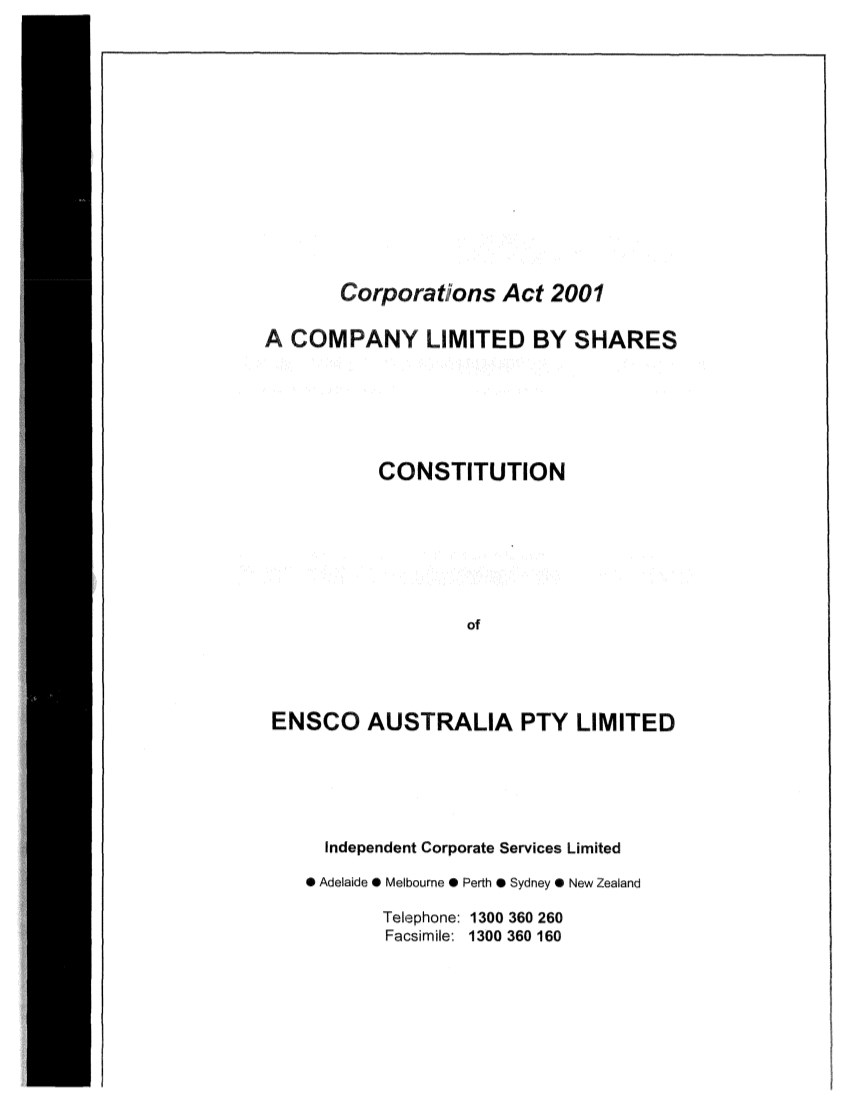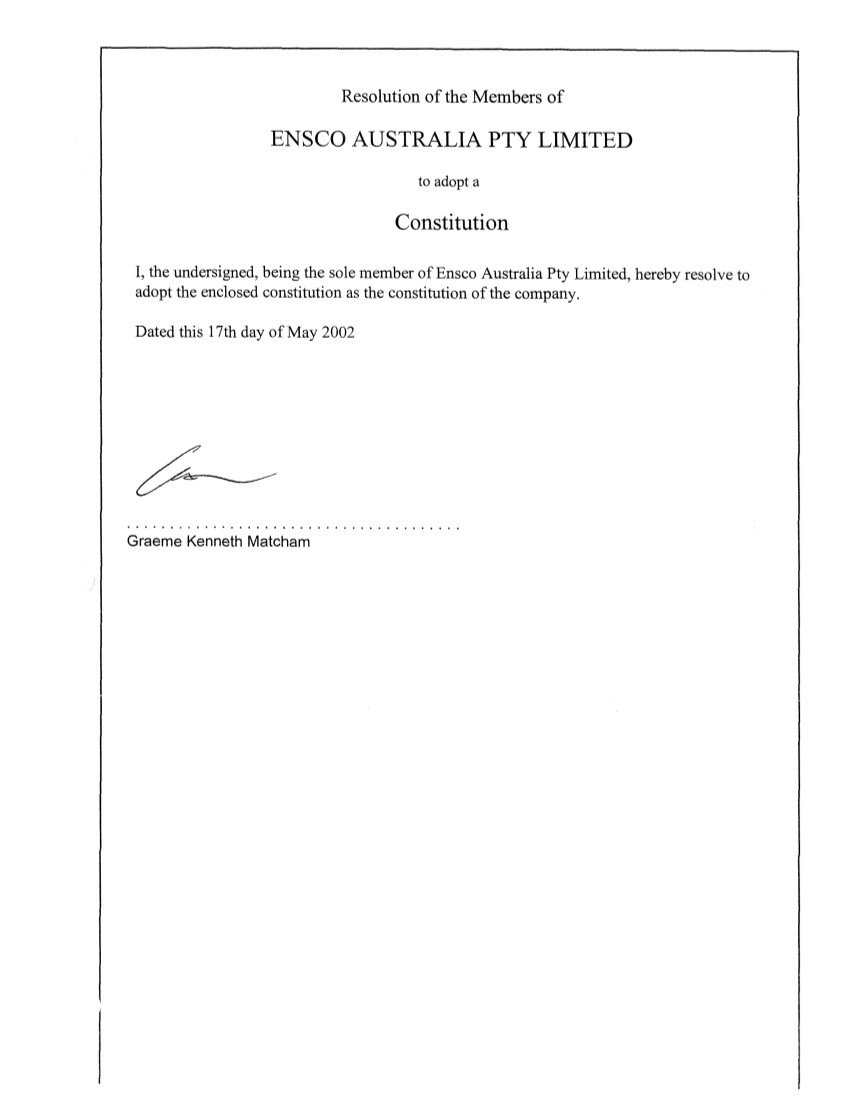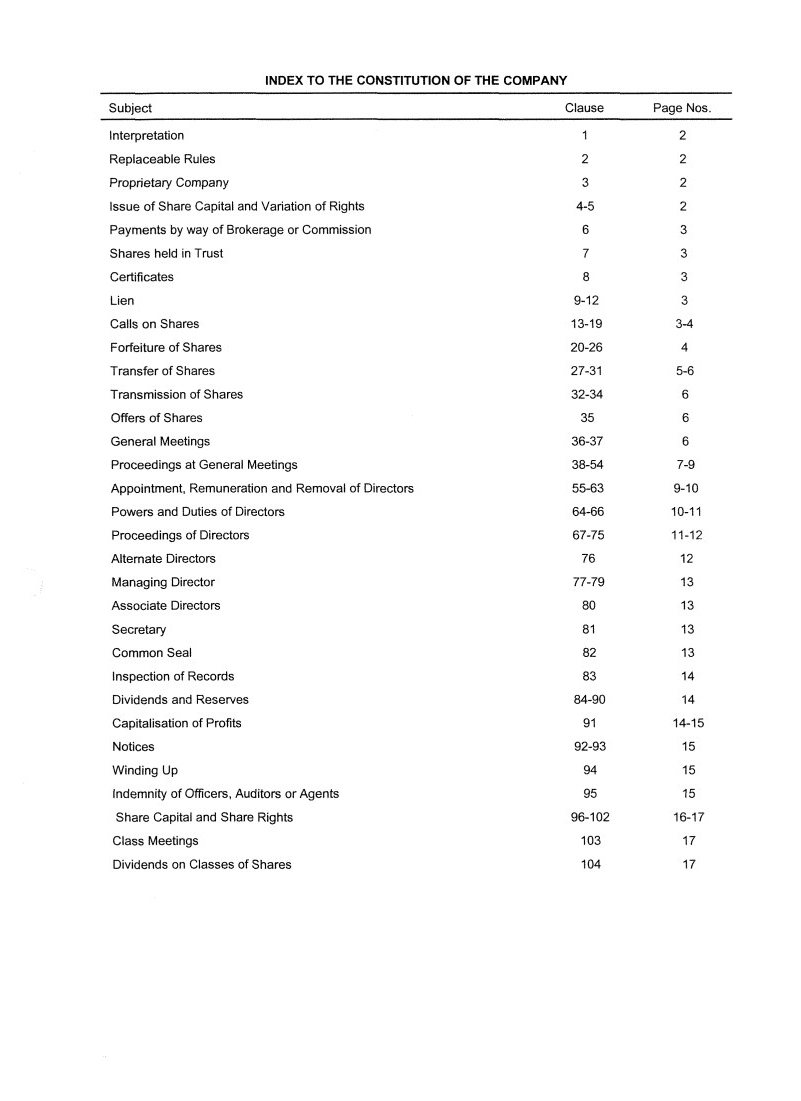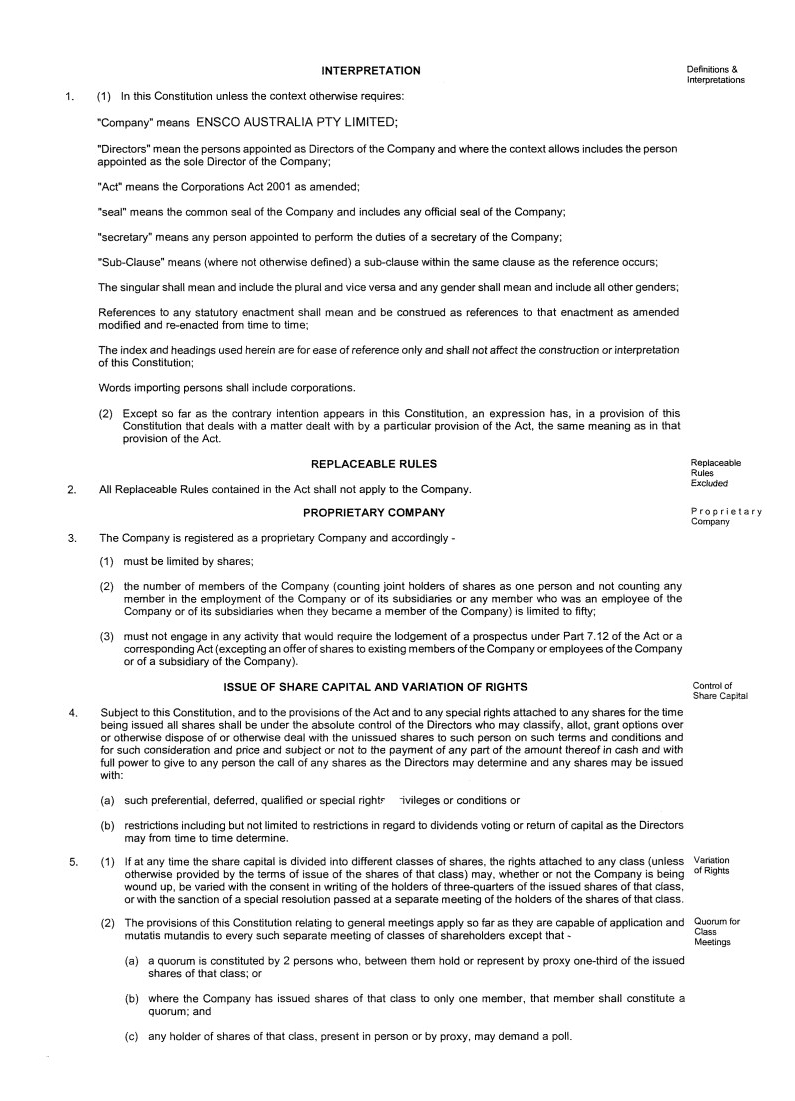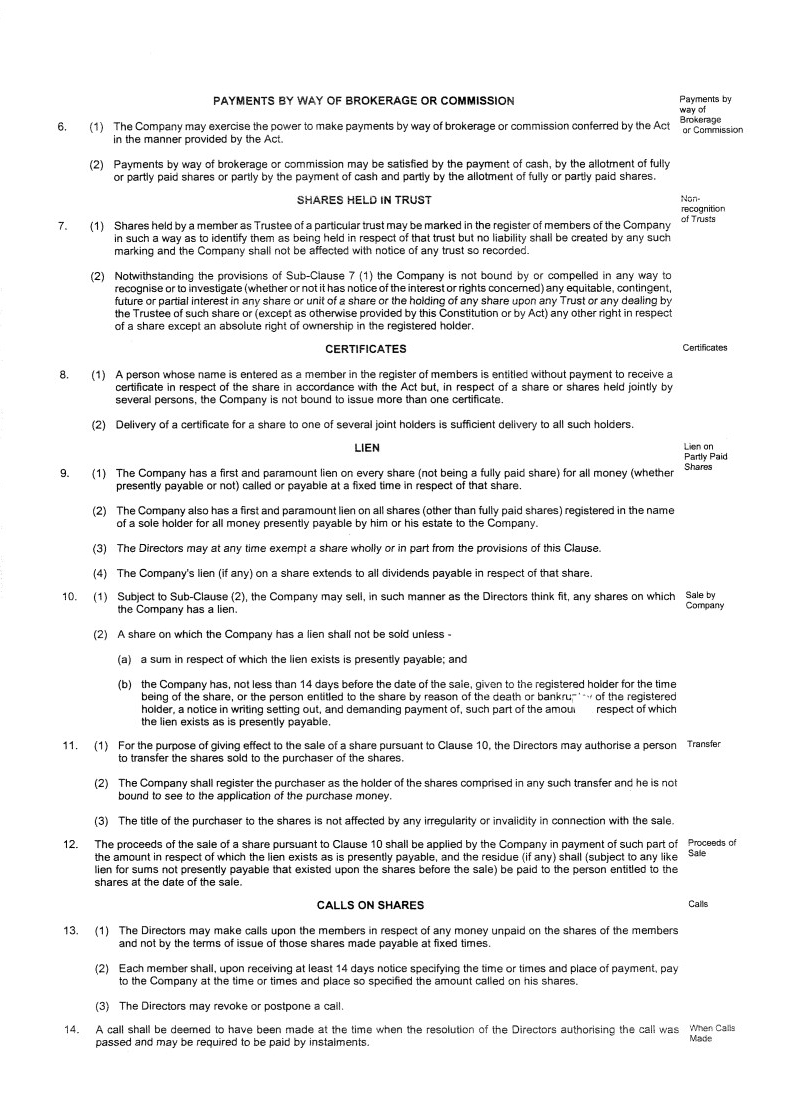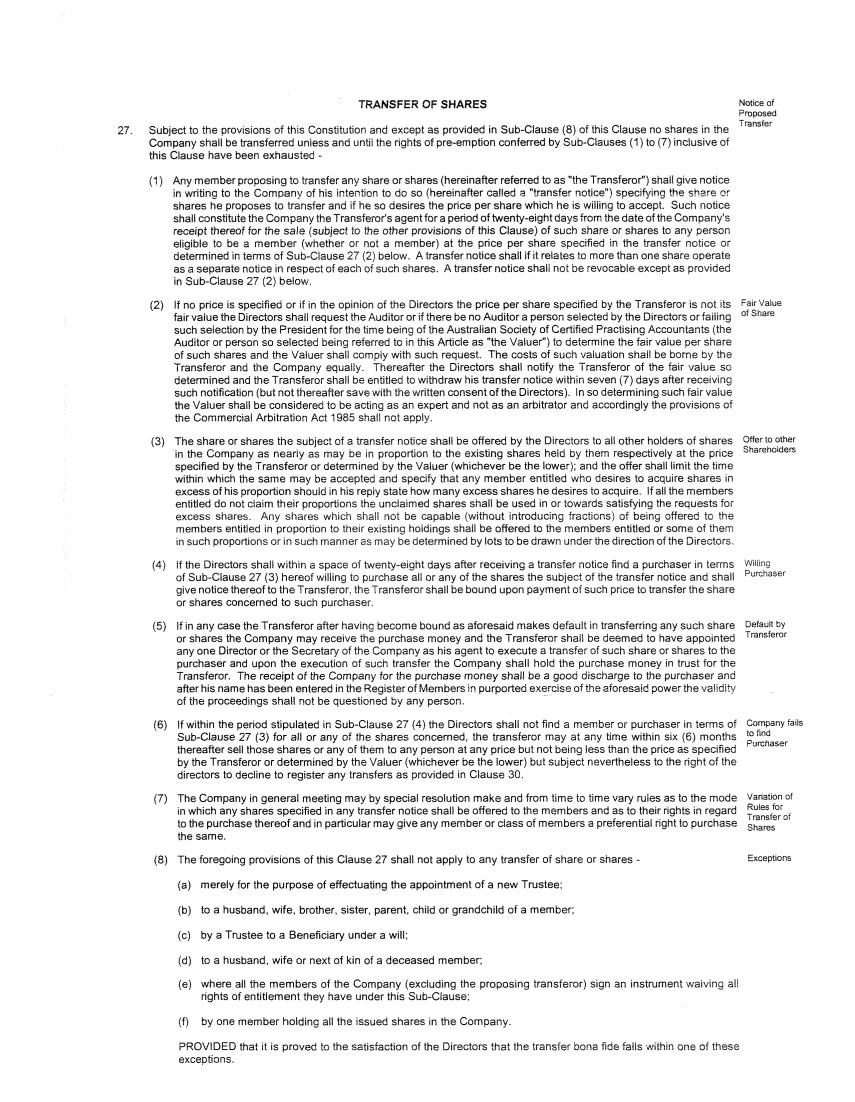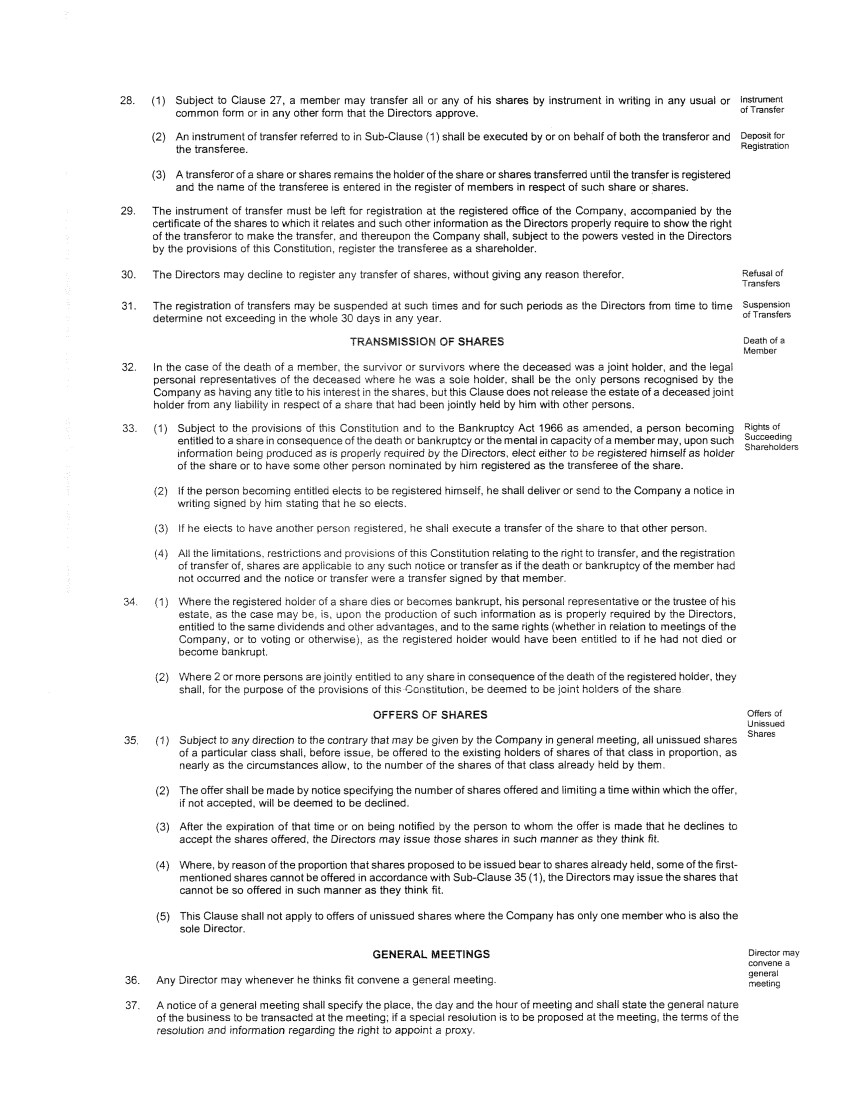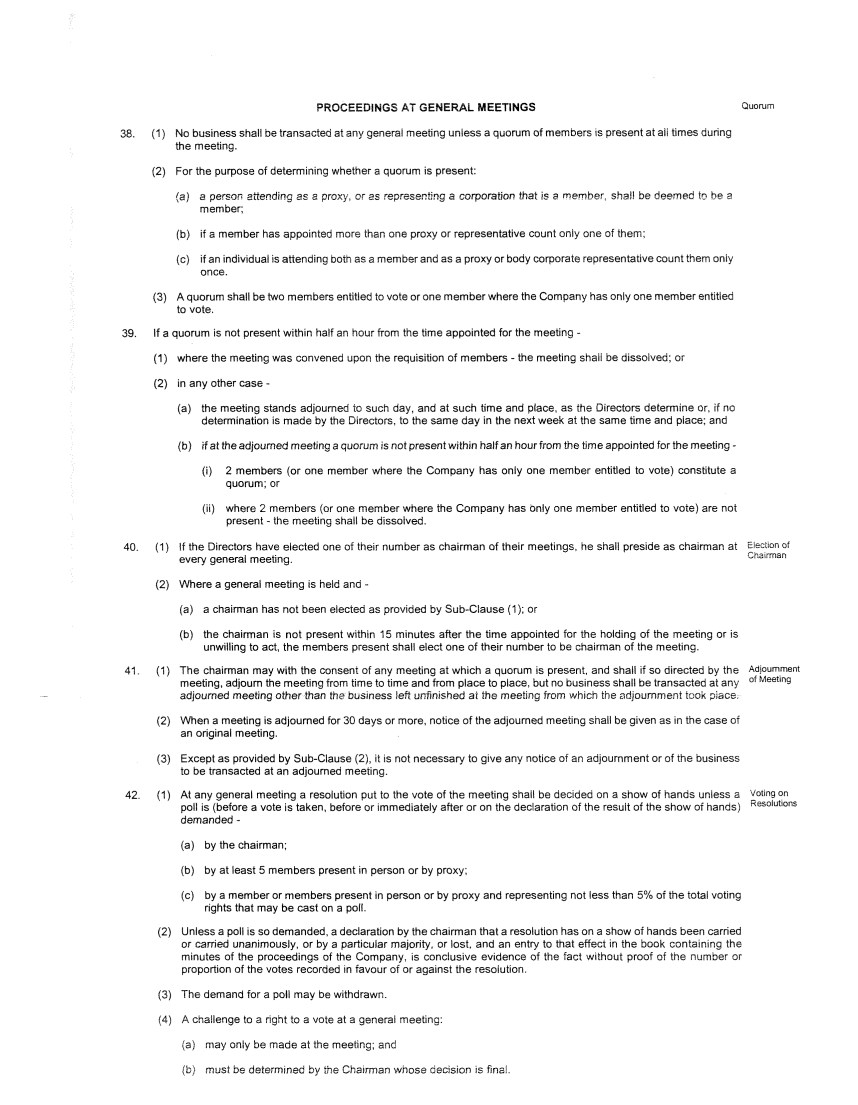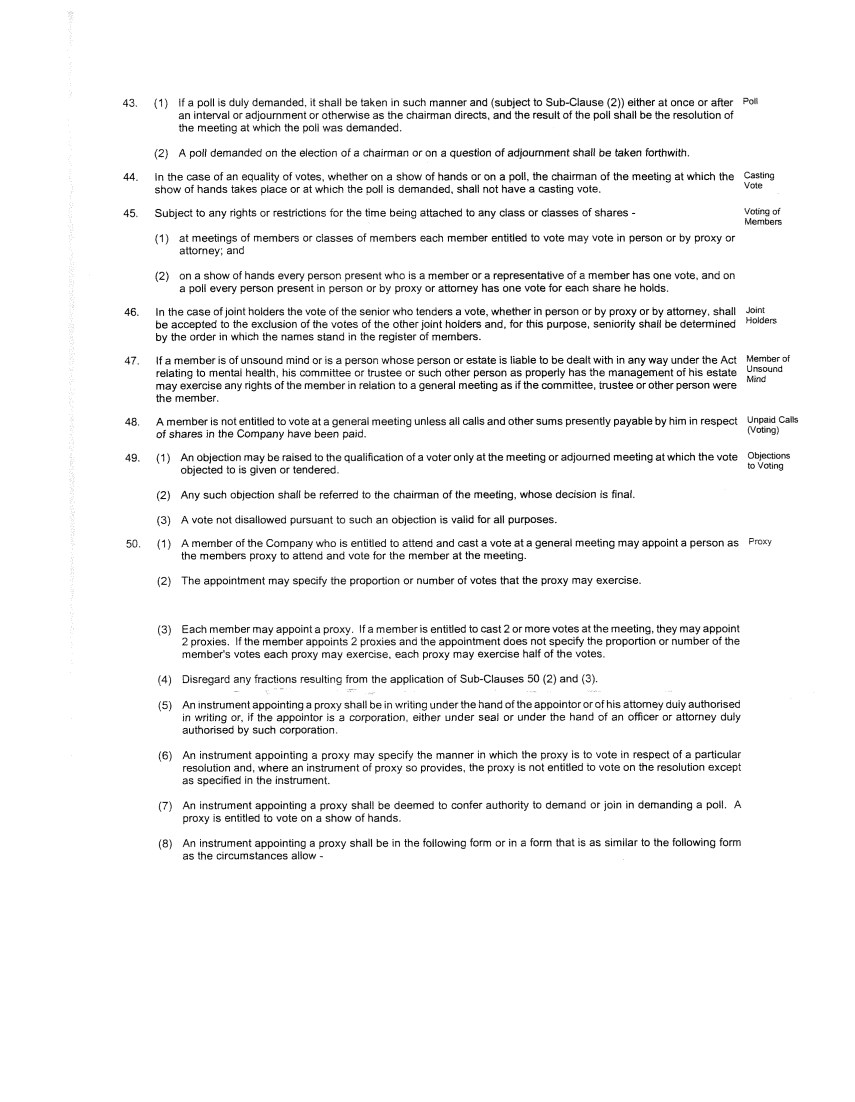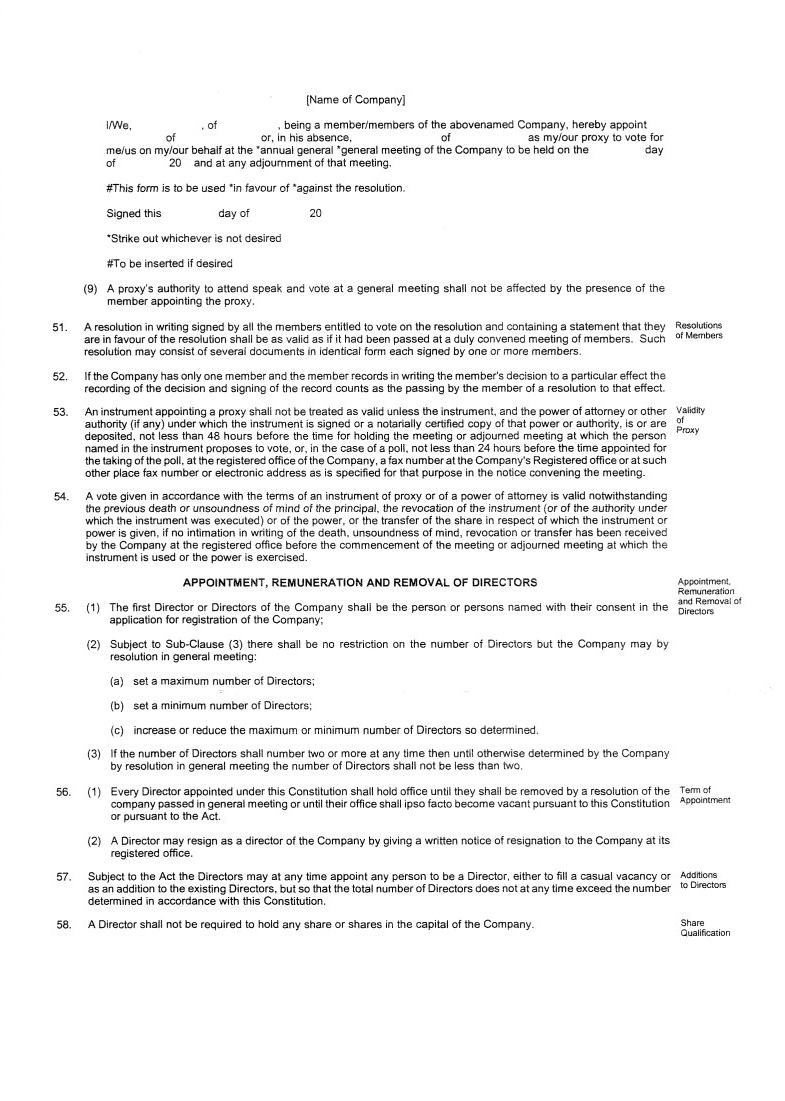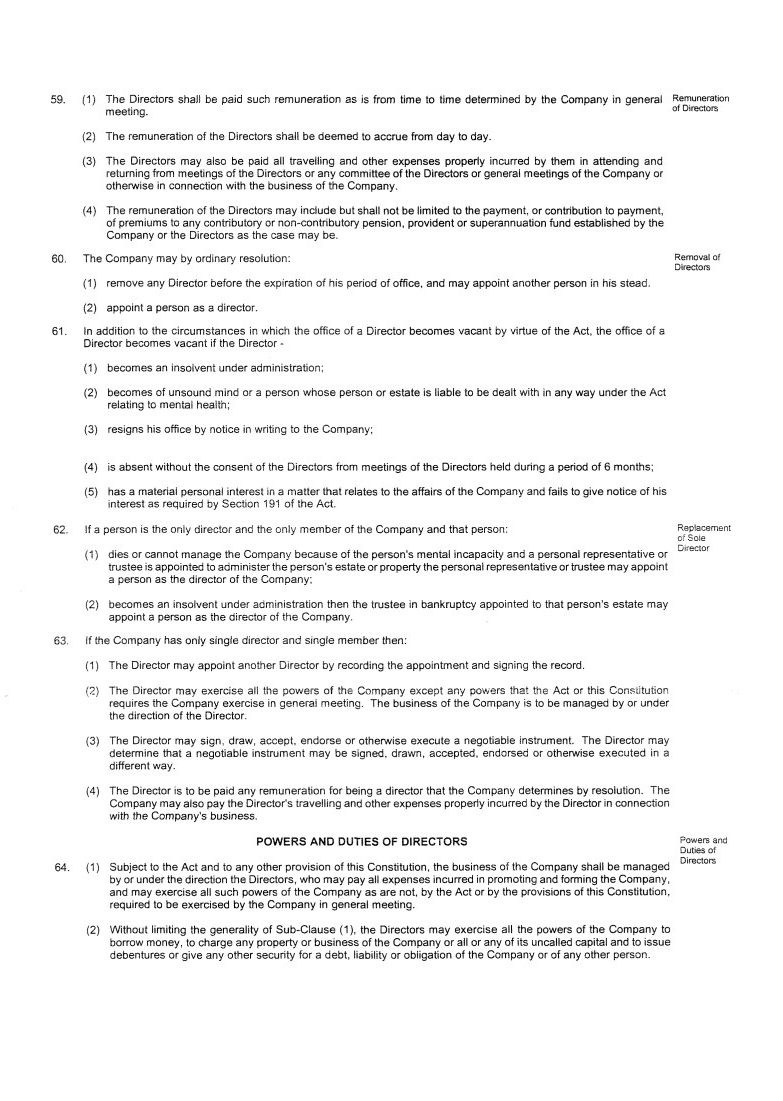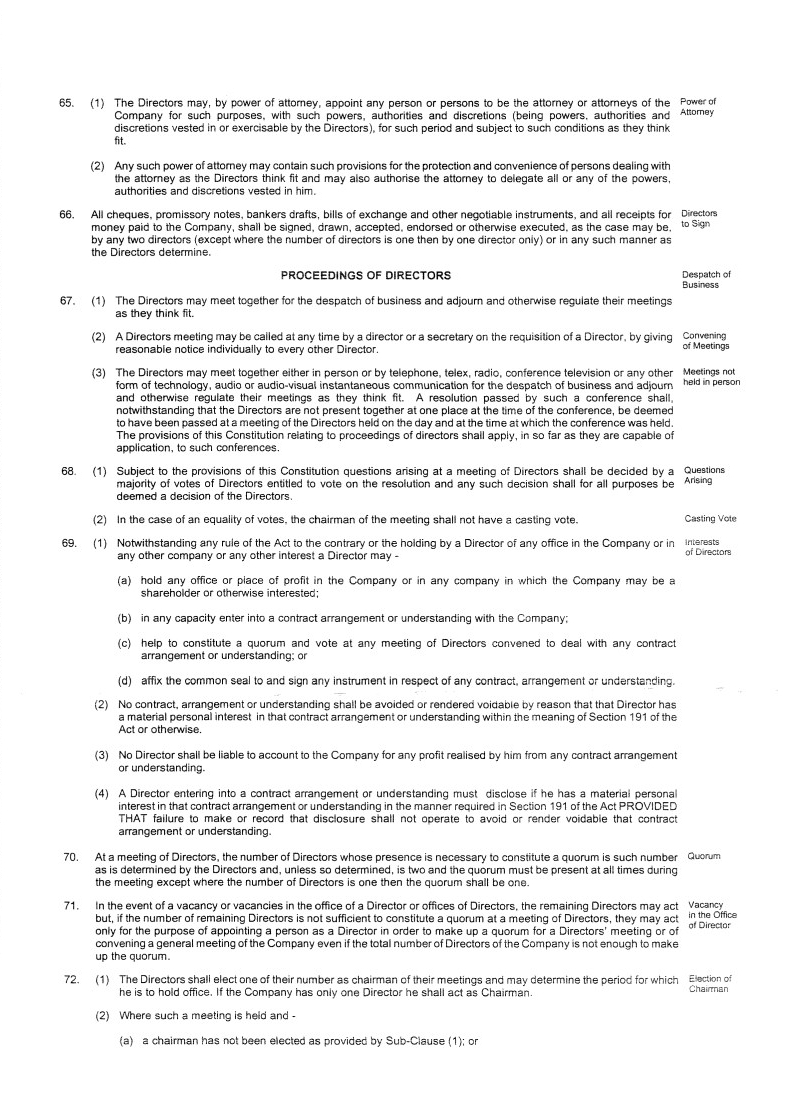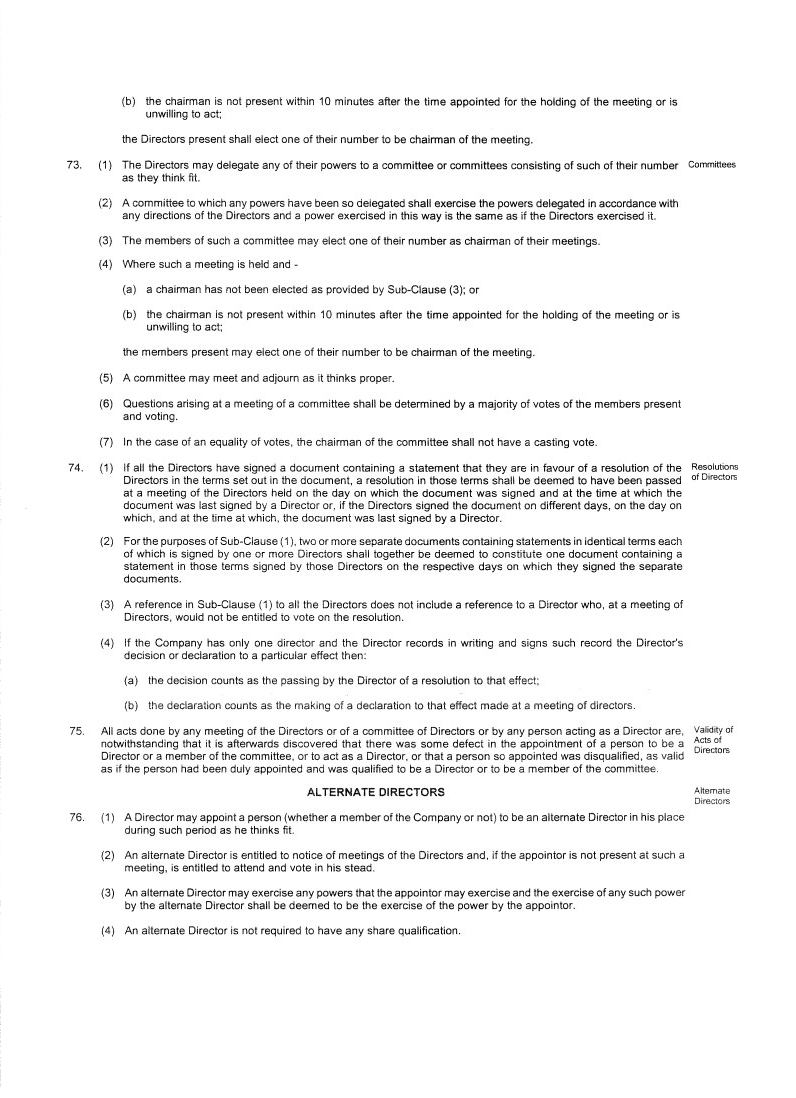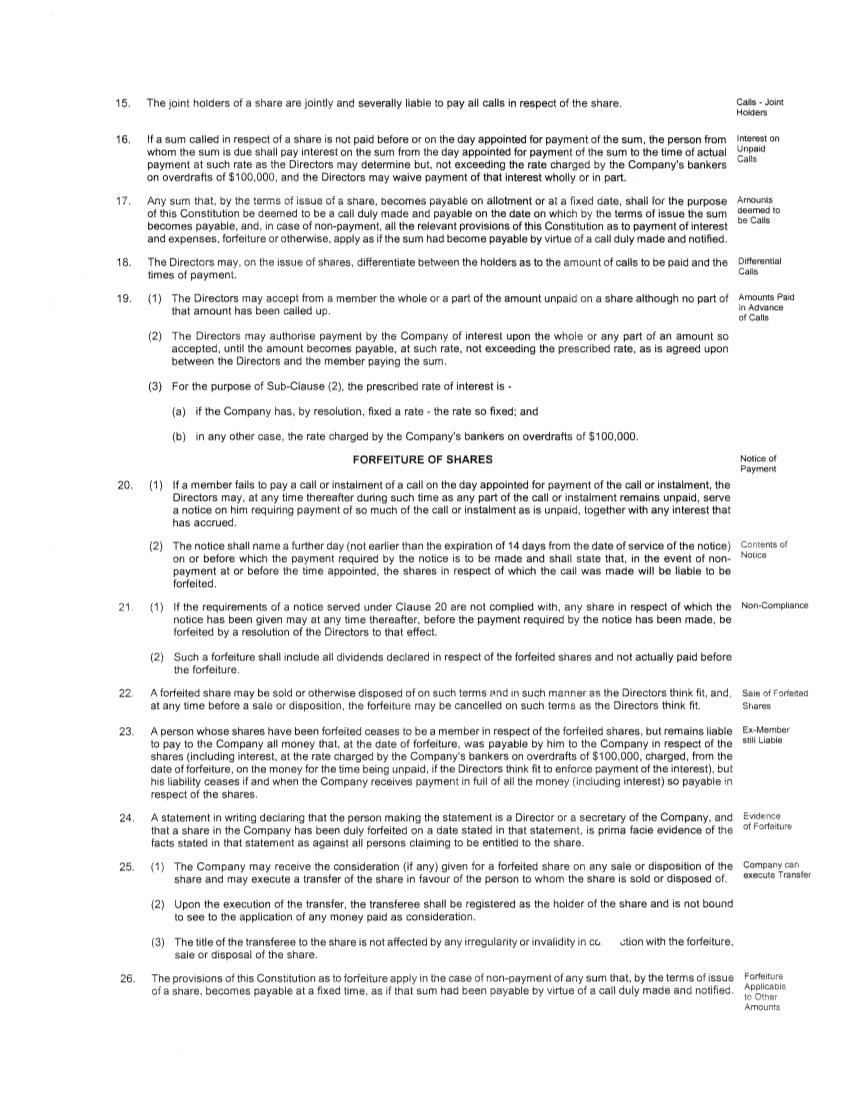
| 15, 16, 17, The joint holders of a share are jointly and severally liable to pay all calls in respect of the share. If a sum called in respect of a share is not paid before or on the day appointed for payment of the sum, the person from whom the sum is due shall pay interest on the sum from the day appointed for payment of the sum to the time of actual payment at such rate as the Directors may determine but, not exceeding the rate charged by the Company's bankers on overdrafts of $100,000, and the Directors may waive payment of that interest wholly or in part. Any sum that, by the terms of issue of a share, becomes payable on allotment or at a fixed date, shali for the purpose of this Constitution be deemed to be a call duly made and payable on the date on which by the terms of issue the sum becomes payable, and, in case of non-payment, all the relevant provisions of this Constitution as to payment of interest and expenses, forfeiture or otherwise, apply as if the sum had become payable by virtue of a call duly made and notified. Calls - Joint Holders Interest on Unpaid Calls Amounts deemed to be Calls 18. The Directors may, on the issue of shares, differentiate between the holders as to the amount of calls to be paid and the Differential times of payment Calls 19. (1) The Directors may accept from a member the whole or a part of the amount unpaid on a share although no part of Amounts Paid that amount has been called up. in Advance of Calls (2) The Directors may authorise payment by the Company of interest upon the whole or any part of an amount so accepted, until the amount becomes payable, at such rate, not exceeding the prescribed rate, as is agreed upon between the Directors and the member paying the sum. (3) For the purpose of Sub-Clause (2), the prescribed rate of interest is - (a) if the Company has, by resolution, fixed a rate - the rate so fixed; and (b) in any other case, the rate charged by the Company's bankers on overdrafts of $100,000. FORFEITURE OF SHARES 20. (1) If a member fails to pay a call or instalment of a call on the day appointed for payment of the call or instalment, the Directors may, at any time thereafter during such time as any part of the call or instalment remains unpaid, serve a notice on him requiring payment of so much of the call or instalment as is unpaid, together with any interest that has accrued. (2) The notice shall name a further day (not earlier than the expiration of 14 days from the date of service of the notice) on or before which the payment required by the notice is to be made and shall state that, in the event of non payment at or before the time appointed, the shares in respect of which the call was made will be liable to be forfeited. Notice of Payment Cements of Notice 21 (1) If the requirements of a notice served under Clause 20 are not complied with, any share in respect of which the Non-Compliance 22 23. 24, 25, 26, notice has been given may at any time thereafter, before the payment required by the notice has been made, be forfeited by a resolution of the Directors to that effect (2) Such a forfeiture shall include all dividends declared in respect of the forfeited shares and not actually paid before the forfeiture. A forfeited share may be sold or otherwise disposed of on such terms ?nd m such manner as the Directors think fit, and, at any time before a sale or disposition, the forfeiture may be cancelled on such terms as the Directors think fit. A person whose shares have been forfeited ceases to be a member in respect of the forfeited shares, but remains liable to pay to the Company all money that, at the date of forfeiture, was payable by him to the Company in respect of the shares (including interest, at the rate charged by the Company's bankers on overdrafts of $100,000, charged, from the date of forfeiture, on the money for the time being unpaid, if the Directors think fit to enforce payment of the interest), but his liability ceases if and when the Company receives payment in full of all the money (including interest) so payable in respect of the shares. A statement in writing declaring that the person making the statement is a Director or a secretary of the Company, and that a share in the Company has been duly forfeited on a date stated in that statement, is prima facie evidence of the facts stated in that statement as against all persons claiming to be entitled to the share. (1) The Company may receive the consideration (if any) given for a forfeited share on any sale or disposition of the share and may execute a transfer of the share in favour of the person to whom the share is sold or disposed of. (2) Upon the execution of the transfer, the transferee shall be registered as the hoider of the share and is not bound to see to the application of any money paid as consideration. (3) The title of the transferee to the share is not affected by any irregulmity or invalidity in cc. sale or disposal of the share. ction with the forfeiture, The provisions of this Constitution as to forfeiture apply in the case of non-payment of any sum that, by the terms of issue of a share, becomes payable at a fixed time, as if that sum had been payable by virtue of a call duly made and notified. Saie of F orferted Shares Ex-Member still Liable Evidence of Forfeiture Company can execute Transfer Forteiture to Amounts |
